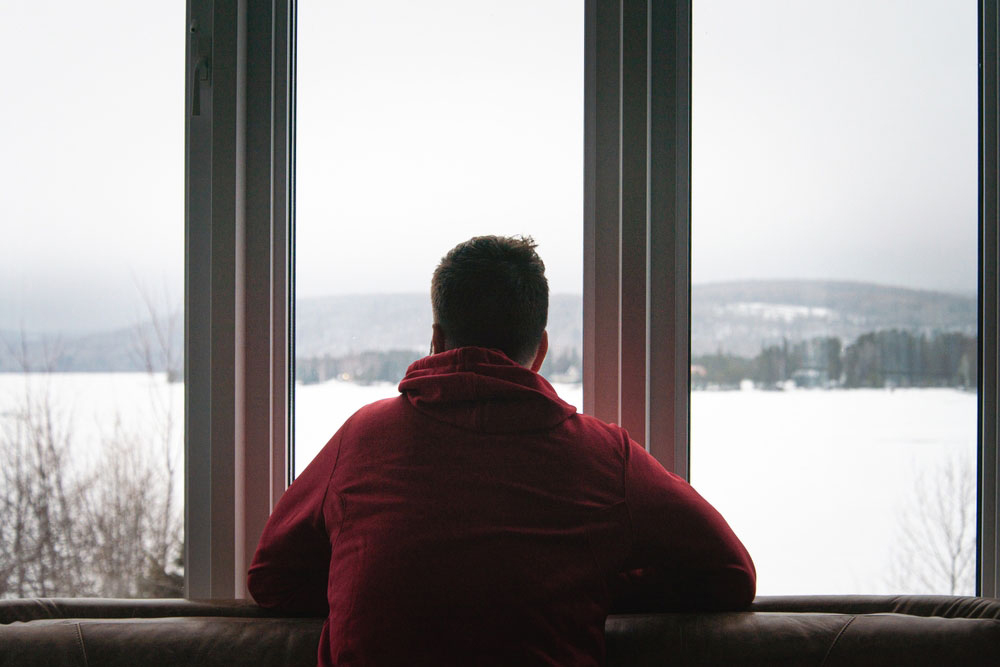Many people experience shifts in their mood and energy levels as the days grow shorter and sunlight becomes harder to find. For some, these changes develop into seasonal depression, also known as seasonal affective disorder. December is Seasonal Depression Awareness Month, making it the perfect time to shed light on this condition and explore how it might affect you.
What Causes Seasonal Depression?
Seasonal affective disorder typically strikes during the fall and winter months, when the reduced daylight hours result in several changes in your body’s innate chemistry and rhythm.
- Reduced serotonin levels: Serotonin is a brain chemical that regulates mood. The short, dreary days of fall and winter can lead to lower serotonin production, contributing to feelings of sadness or irritability.
- Disrupted sleep: Sunlight regulates your circadian rhythm, which is your internal clock. Reduced exposure to sunlight can disrupt this rhythm, making it harder to fall asleep, stay asleep, or wake up feeling refreshed. Being chronically sleep-deprived will exacerbate your feelings of depression.
- Increased melatonin production: Longer nights can cause your body to make extra melatonin, a hormone that regulates sleep. Higher melatonin levels during the day may make you feel sluggish or fatigued, further contributing to seasonal depression.
How Seasonal Depression Affects Men
Seasonal depression can affect anyone, but men often experience unique challenges. First, societal expectations around masculinity may discourage you from discussing your mental health or asking for help, prolonging your struggle. Additionally, men’s depression is more likely to manifest in irritability, anger, and difficulty concentrating instead of sadness or fatigue. These differences can make it harder to recognize and diagnose.
Men with depression often turn to unhealthy behaviors like substance use or overeating to cope with feelings of low energy and mood, which can compound the problem.
Drug-Free Ways to Manage Seasonal Depression
If you experience seasonal affective disorder this fall and winter, try these effective strategies to improve your mood and energy levels.
- Maximize exposure to natural light: Spend as much time as possible outdoors during daylight hours. Take an early-morning walk or work near a window to get sunshine.
- Try light therapy: Light therapy involves sitting near a specialized box that mimics natural sunlight. This treatment can regulate your circadian rhythm and boost serotonin production, reducing symptoms of SAD.
- Stay active: Regular exercise is one of the best natural mood boosters. Physical activity increases endorphins, regulates sleep patterns, and combats feelings of sluggishness. Try incorporating activities like walking, biking, or yoga into your daily routine.
- Maintain a balanced diet: Fresh produce, whole grains, and lean proteins can improve your well-being. Limit sugar and processed foods, which cause energy crashes and worsen mood swings.
- Stick to a sleep routine: Go to bed and wake up at the same time every day, even on weekends. A consistent sleep schedule controls your body’s internal clock, boosting your mood and energy levels.
- Practice mindfulness and stress reduction: Use practices like meditation and controlled breathing exercises to manage your stress and improve your focus. These techniques can also relieve irritability or anxiety.
- Connect with others: Isolation can worsen depression. Try to connect with friends, family, or a support group. Sharing your feelings and experiences can provide comfort and perspective.
Discover Our Crucible for Change
You may need professional counseling if seasonal affective disorder interferes with your ability to function or enjoy life to its fullest. Legacy Texas understands the unique challenges men face with their mental health and offers tailored, integrative wellness therapies to enhance your well-being. We’re here to make fall and winter a time of emotional resilience instead of seasons to dread.
Fall and winter seasonal depression is a genuine challenge for many people. By understanding its causes and how it affects you, you can manage your symptoms and improve your quality of life. This December, let’s raise awareness of seasonal depression and encourage open conversations about mental health. If you’re struggling, reach out to our men’s-only recovery community to find the brotherhood you need to thrive year-round.

